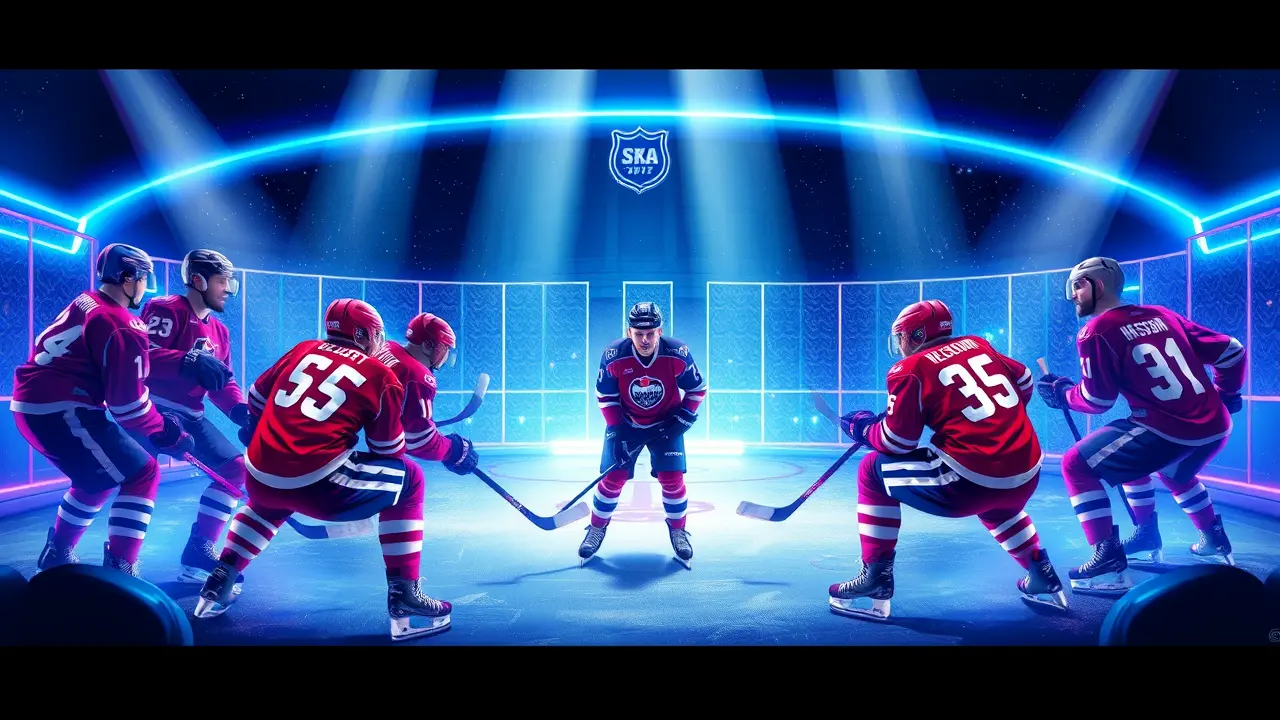Forward Tkachev comments on Metallurg's loss to Avangard.
The final buzzer echoed through a subdued arena, a sound that spoke less of a singular defeat and more of a recurring narrative for Metallurg, a narrative defined not by a lack of opportunity but by a critical failure in the cold, hard calculus of finishing. For forward Vladimir Tkachev, facing his former club Avangard was a stage set for a statement performance, yet the script unfolded with a frustratingly familiar plotline.The post-game analysis, distilled through Tkachev’s own candid assessment, pointed unerringly to execution—or the stark lack thereof. 'The realization of moments was the reason for the defeat,' he stated, a simple verdict that carries the weight of a season.'Avangard used their chances, we did not. ' This is the brutal, binary logic of elite sport, where dominance in possession and territorial advantage are rendered meaningless if they are not translated onto the scoreboard.It’s a dynamic any football analyst would recognize instantly; it’s the age-old conundrum of a team that controls the ball like prime Barcelona, weaving intricate patterns in midfield, only to be sucker-punched by a counter-attacking side that embodies ruthless efficiency, a hockey equivalent of a Diego Simeone-led Atlético Madrid. Tkachev’s allusion to Avangard’s goaltender standing on his head is a classic trope in these scenarios, the ‘hot goalie’ who becomes an impenetrable fortress, but his following remark—‘we did not grind out the goals’—cuts to the very heart of the matter.This speaks to a missing ingredient, a lack of that predatory instinct, the kind that separates a Lionel Messi, who can create a goal from nothing, from a player who merely participates in the buildup. It’s about the will to score being as potent as the skill to create, about forcing the puck across the line through sheer determination when the pretty plays aren't working.Tkachev’s personal outlook, treating every match as an opportunity to prove himself, is the professional mantra of a top athlete, but it also hints at the internal pressure that comes with such a high-profile transfer. The shadow of his former teammates, the desire to show his old club what they are missing, these are powerful psychological undercurrents that can sharpen focus or, conversely, lead to forced plays and missed cues.His calm dismissal of premature escalation, noting the five remaining contests against Avangard, reveals a player and a team thinking in terms of a marathon, not a sprint. This is a crucial psychological ploy, reminiscent of a championship boxer losing an early round but knowing the fight is long, adjusting strategy and conserving energy for the later assaults.The broader context for Metallurg is a season-long battle where consistency in results is paramount, and losses like this, while painful, are data points in a larger dataset. The team must now analyze the tape not with despair but with a forensic eye: were the missed chances a result of superb goaltending, poor shot selection, a lack of traffic in front, or a systemic issue in their offensive zone deployment? Is there a need to simplify their approach, to emulate the ‘greasy goal’ philosophy that wins playoff series, shooting more from the perimeter and battling for rebounds, rather than seeking the perfect tic-tac-toe play? The performance of their own netminder, Nabokov, who ‘also bailed us out today,’ as Tkachev acknowledged, is a silver lining but also a potential crutch; a team cannot rely solely on its last line of defense to steal points night after night.The true test of Metallurg’s championship mettle will be how they respond in the next encounter. Do they double down on their system, trusting that the law of averages will eventually see their chances go in? Or do they make tactical tweaks, perhaps shifting line combinations to spark new chemistry, much like a football manager might alter his front three to break down a stubborn defense? The chess match between these two clubs is far from over, and while this battle went to Avangard, Tkachev’s measured response suggests a war that is still very much alive. The lessons from this loss are clear: talent creates chances, but championship DNA is defined by the cold-blooded efficiency to convert them.
It’s quiet here...Start the conversation by leaving the first comment.
